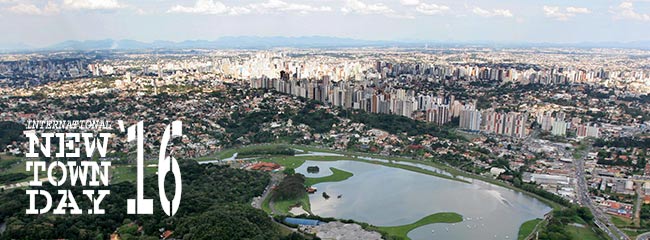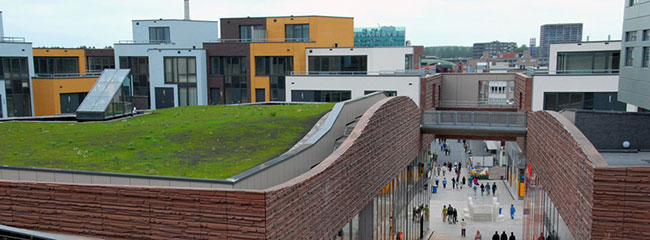With climate change catching on, every city is concerned with its level of sustainability. Where older cities are trying to adapt their original structure, New Towns have the opportunity to incorporate sustainable measures into their (relatively) new urban structure. Both the New Towns of Curitiba and Almere have understood this very well. Though via two different approaches, both New Towns show how waste recycling and green growth can be encouraged.
Without budget for a standard recycling plant, Curitiba started the ‘Lixo que nao è Lixo’ (Garbage That Is Not garbage) and ‘Cambio Verde’ (Green Exchange) programs. The former is the program by means of which the city established complementary currencies to reward people for separating their organic and non-organic recyclable waste and bringing it to waste stations, where they can be exchanged for public transport tickets, food, and books. The latter, ‘Cambio Verde’, is the program that incorporates locally grown, organic, healthy food into this recycling program. “The actions of education for sustainability, biodiversity, basic environmental responsibility, water quality control and waste management achieve great impact in the community” says Luisiana Paganelli, introducing us to Curitiba’s policies and approaches. Recycling citizens receive these food products in exchange for their recyclable waste or can buy them with 30% discount.
Almere’s fight against waste is motivated by the goal of being nearly fully ‘waste free’ by 2020, producing only 50 kg non-recyclable waste per capita. This implies that everything that can be recycled, will be recycled (glass, plastic, organic waste and paper). To achieve this, Almere has initiated a variety of city-wide, soft solutions: increased checks on ‘garbage dumping’ (illegally throwing out household refuge); availability of ‘big bags’ in which moving trash can be thrown out; three recycling platforms throughout the city; and increased citizen’s education on recycling and waste management according to the principle of the city “People make the city”. The driver of Almere sustainable and environmental ambitions is the World Horticultural Exhibition Floriade 2022 under the motto: Energizing, Healthy-ing, Greening and Feeding.
Both cities show great efforts on waste management and recycling policies. Though, obviously, the unique conditions of every city prevent that one method can be literally copied, Almere and Curitiba certainly have the approach to inspire.


